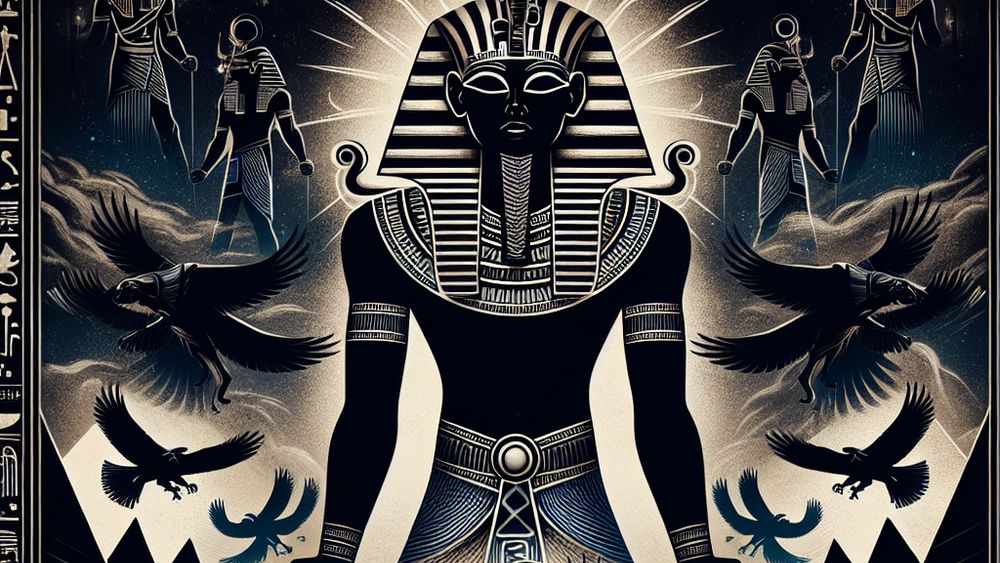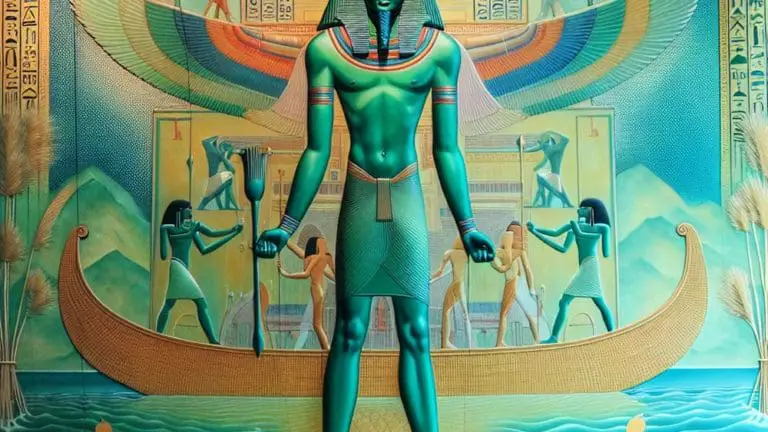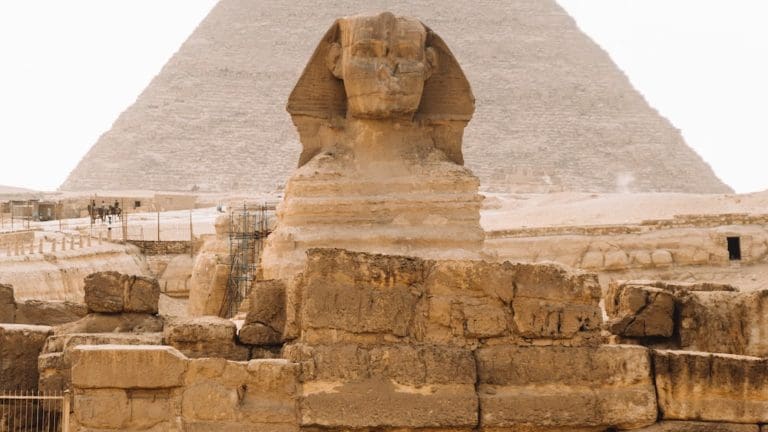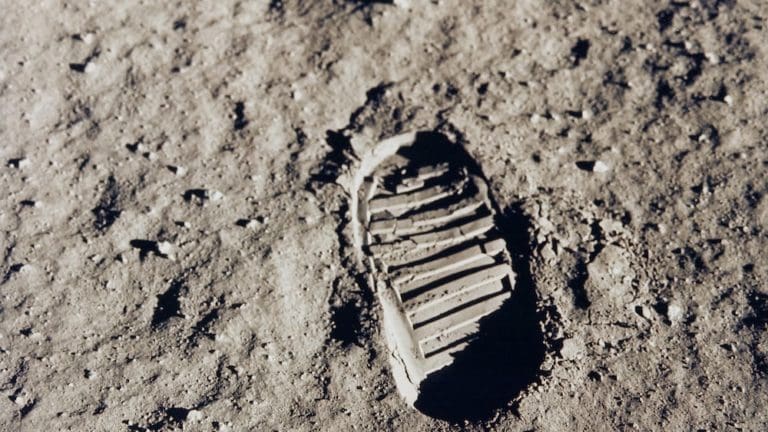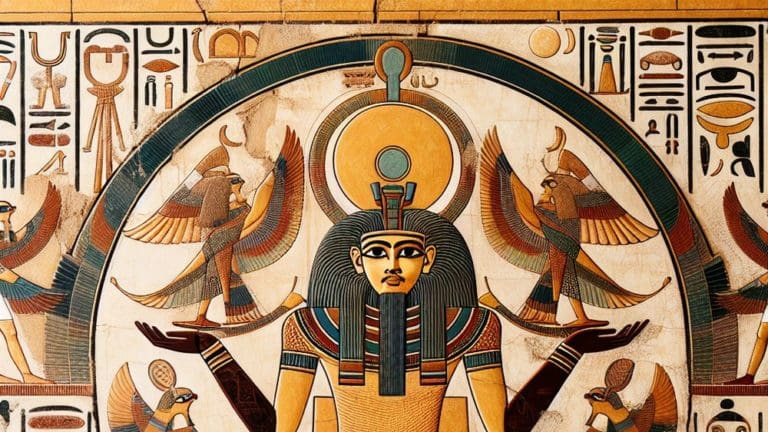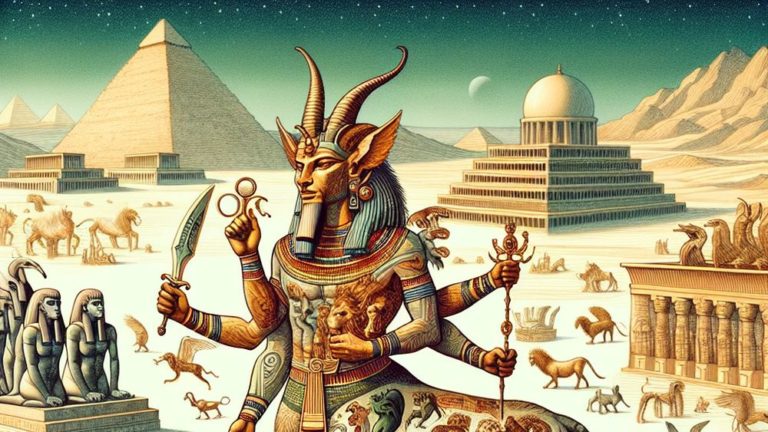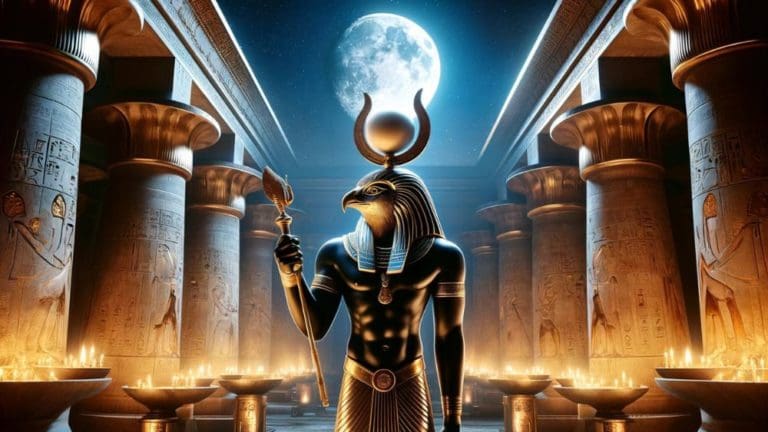Discover: Which Egyptian God Guards The Underworld?
Discover: Which Egyptian God Guards The Underworld?
Embarking on a journey through the mists of time, one can’t help but wonder which Egyptian god guards the underworld? This enigmatic realm, shrouded in myth and mystery, has captivated the imaginations of historians, archaeologists, and travelers alike.
Key Points:
- Anubis is the primary guardian of the Egyptian underworld, guiding souls and overseeing the embalming process.
- Osiris rules the Egyptian underworld as king, judges souls, and offers rebirth to worthy ones.
- Thoth records the verdict of the soul’s judgment, while Ma’at’s feather is used in the weighing of the heart ceremony.
- The journey through the underworld involves passing through Twelve Chambers of Hell, facing various challenges.
- The Final Judgment before Osiris determines one’s fate in the afterlife, granting access to the Field of Reeds if deemed worthy.
- The Negative Confessions and presentation of offerings were crucial in proving one’s virtue during the Final Judgment.
- The Egyptian afterlife is a richly populated realm with deities attending to every stage of the soul’s journey.
The ancient Egyptian underworld, a place where souls were judged and the afterlife began, is guarded by deities of immense power and wisdom. This blog post invites you to unravel the secrets of these divine protectors and explore the magical rituals that ensured safe passage for the dead.
The Guardians of the Egyptian Underworld
The guardians of the Egyptian underworld are not just mere mythical figures; they are symbols of protection, judgment, and rebirth. Each deity plays a crucial role in the journey of the soul into the afterlife, ensuring the balance between the worlds of the living and the dead.
Anubis: The Jackal-Headed Protector
Anubis, the jackal-headed god, is the primary guardian of the underworld in Egyptian mythology. His roles include protecting the dead, guiding souls, and overseeing the embalming process. Anubis is a symbol of the threshold between life and death, ensuring safe passage for the souls into the afterlife.
- Guides souls to the underworld
- Oversees the weighing of the heart ceremony
- Protector of graves and embalming process
- Represents the balance between life and death
Anubis embodies the balance between life and death, guiding souls, overseeing the weighing of the heart ceremony, and protecting the dead.
Osiris: The King of the Underworld
Osiris, the king of the underworld and the god of the afterlife, resurrection, and fertility, holds a pivotal role in Egyptian mythology. He is the judge of the dead, offering rebirth to those deemed worthy. Osiris’s own story of death and resurrection at the hands of his brother Seth and his subsequent rise to power in the underworld is a testament to his importance.

- Rules the Egyptian underworld as king
- Judges the souls of the deceased
- Symbol of resurrection and fertility
- Offers rebirth to worthy souls
The Role of Other Deities in the Afterlife
The Egyptian underworld was a realm populated by numerous gods and goddesses, each playing a specific role in the journey of the soul. From guiding and protecting to judging and offering renewal, these deities ensured the delicate balance of life, death, and the afterlife.
- Thoth: Records the verdict of the soul’s judgment
- Ma’at: Represents truth and justice, her feather is used in the weighing of the heart
- Isis: Offers protection with magic, assisting in the resurrection of Osiris
- Nephthys: Guards the deceased, offering comfort and guidance
The Journey Through the Underworld
Embarking on the journey through the underworld was no small feat for the ancient Egyptians. It was a voyage filled with danger, mysticism, and the ultimate quest for eternal life in the afterlife. This perilous path was guarded by gods and goddesses, each playing a critical role in the fate of the departed souls. The Egyptians believed this journey was crucial for rebirth into the afterlife, making it a central aspect of their death rituals and beliefs.
The Weighing of the Heart Ceremony
The Weighing of the Heart Ceremony was a pivotal moment for the deceased in the Egyptian afterlife. It determined whether one’s soul was worthy of entering the paradise of the afterlife or if they would be devoured by the fearsome Ammit. The soul’s heart was weighed against the feather of Ma’at, symbolizing truth and justice. If the heart was lighter, the soul passed into the afterlife; if heavier, it was deemed unworthy.
| Outcome | Symbol | Deity Involved | Final Destination |
|---|---|---|---|
| Heart lighter than the feather | Feather of Ma’at | Thoth | Field of Reeds |
| Heart heavier than the feather | Devoured | Ammit | Cease to exist |
The Weighing of the Heart Ceremony in the Egyptian afterlife determined a soul’s worthiness for paradise based on the balance of their heart against the feather of Ma’at.
The Twelve Chambers of Hell
The Twelve Chambers of Hell represented a series of arduous tests that a soul had to navigate to reach the afterlife. Each chamber held its own set of challenges, from boiling rivers to monstrous guardians set on deterring the unworthy.
- First Chamber: The chamber of fire where souls prove their purity.
- Second Chamber: Inhabited by serpent demons testing the soul’s resilience.
- Third Chamber: A vast desert to be crossed under the scorching sun without water.
- Fourth Chamber: The river of the dead, where souls must negotiate passage with the ferryman.
- Each successive chamber offered unique trials, from dueling with shadows to outsmarting creatures of the dark, ultimately leading to the final judgment.
The last step was to stand before Osiris and plead one’s case, hoping for a favorable judgment to enter the Field of Reeds, a place of eternal peace and abundance.
The Final Judgment and the Field of Reeds
The Final Judgment was the ultimate test of one’s virtue and actions during their lifetime. Standing before Osiris, the deceased would recite the Negative Confessions, a list of sins they had not committed, in hopes of proving their worthiness.

- Recitation of the Negative Confessions: Denying any wrongdoing against gods or individuals.
- Presentation of Offerings: Gifts to the gods to earn their favor.
- Osiris’s Verdict: The final decision, determining the soul’s fate in the afterlife.
If deemed worthy, the soul was granted entrance to the Field of Reeds, an idyllic place resembling a perfect version of Egypt, where the soul could live in peace, engage in their favorite activities, and be reunited with loved ones. It was the ultimate reward, reflecting the Egyptian’s deep connection to their land and the Nile’s fertile banks.
The Final Judgment in ancient Egyptian belief was a critical evaluation of one’s deeds and character in the afterlife.
FAQs
1. Who is the primary guardian of the underworld in Egyptian mythology?
The primary guardian of the underworld in Egyptian mythology is Anubis. He is often depicted as a man with the head of a jackal, standing as a sentinel over the dead. Anubis’s role was to guide souls into the afterlife, ensuring their safe passage and that they were properly judged.
2. How did Anubis become associated with the underworld?
Anubis became associated with the underworld due to his early role as a god of embalming and protector of graves. This association strengthened over time as myths evolved; one telling tale was his service in mummifying Osiris, cementing his position as a crucial deity guiding the dead to the afterlife.
3. What role does Osiris play in the afterlife?
In the afterlife, Osiris plays a pivotal role as its ruler and the judge of the deceased souls. Following his own resurrection story, Osiris became synonymous with rebirth and regeneration, sitting in judgment over the souls seeking entry into the eternal fields of reeds.
4. Are there any other deities involved in the Egyptian concept of the afterlife?
Yes, there are other deities involved in the Egyptian concept of the afterlife aside from Anubis and Osiris. Deities like Thoth, who recorded the outcome of the judgment, and Ma’at, whose feather was used in the weighing of the heart ceremony, played significant roles. Gods and goddesses of the afterlife provided protection, guidance, and judgment to the departing souls.
Conclusion
In summarizing the guardianship of the Egyptian underworld, we find a pantheon of deities each contributing uniquely to the journey and judgment of the dead. From the jackal-headed Anubis, ensuring the safe passage and proper rites, to Osiris, king and judge in the realm beyond, the Egyptian afterlife was richly populated with gods attending to every stage of the soul’s passage. This exploration into which Egyptian god guards the underworld reveals not just the depth of Egyptian mythology, but also the complex belief system centered around life, death, and the afterlife. As we continue to unearth and understand these ancient beliefs, we are reminded of the timeless fascination with what lies beyond and the ever-present desire of humanity to find guardianship in the afterlife.
May this journey through the mysteries of the Egyptian afterlife inspire you to explore further and reflect deeply on the beliefs of ancient cultures. Our past is a rich tapestry that continues to teach us about the universal questions of life and death. Thank you for sharing this adventure with me.
Warmest regards, Cedric

